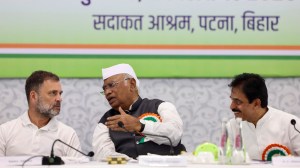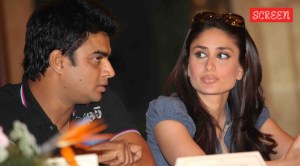Officialdom forgets Lala even in his death
NEW DELHI, AUGUST 7: Throughout his cricketing career and much after, Lala Amarnath was treated indifferently by the establishment. And in...

NEW DELHI, AUGUST 7: Throughout his cricketing career and much after, Lala Amarnath was treated indifferently by the establishment. And in death, too, he was not treated any differently.
The last journey of Independent India’s first cricket captain was attended by just three former Test cricketers (Surendernath, Yashpal Sharma and Gursharan Singh) and a few former Delhi Ranji Trophy players (Gyaneshwar Parshad, Vinay Lamba, Sushil Kumar). But what was most surprising was the complete absence of any official from the Board of Control for Cricket in India (BCCI) and the Railways as Lala’s mortal consigned to the flames this morning.
During his entire life, Lala Amarnath never bothered about anything or anybody. So was the case in his death. But a man of such great personality and stature deserved a better farewell. If he had been a citizen of any other country, he would surely have got a state funeral. No representative of the government or the sports ministry came either to his residence or the crematorium to offer condolences. For them, their job was done once they issued statements to the media.
None of the Board officials, who issue statements at every available opportunity and shout from rooftops about their concern for the game and the players, bothered to even call upon the Amarnath family members to share their grief at this juncture. That was the least they could have done to one of the greatest cricketing personalities of the country. “They (BCCI officials) have time to rush to the CBI headquarters which is just a stone’s throw away from the Lodhi Road crematorium but not bother to pay respects to the departed legend,” an old admirer of the Lala commented.
Sports journalists almost none of them had seen the Lala play in his lifetime attended the funeral in large number. Besides representing the country in 24 Tests, Lala Amarnath served the Board for several years as chairman of the selection committee and as manager of the national team. He had groomed several players and inducted them into the national squad. The least these men could have done was to repay the debt by paying their last respects to the departed soul.
Yet it was hardly surprising considering what cricket means today. Lala Amarnath did not belong just to cricket. He was a sportsman par excellence. He was a national treasure. Even the sports federations were hardly represented at the funeral, barring life president of the Table Tennis Federation of India (TTFI) S P Bagla. The Delhi and District Cricket Association (DDCA) was represented by just a couple of members. Former international umpire Ram Babu Gupta said he had “come on a personal capacity.”
Lala played a major role in getting Railway Sports Control Board (RSCB) a berth in the Ranji Trophy tournament. He represented the Railways team for a number of years and raised its standard during his playing days. Amarnath’s two elder sons and former Test cricketers, Surinder and Mohinder, brought the body to the crematorium in an ambulance. On his body lay his favourite Fedora hat which was his trademark in his older days and by his side was a cricket bat, symbolic of his association with the game.
His entire family members, including his grandchildren, were present as they bade a tearful farewell to the legendary cricketer. Digvijay, younger son of Surinder Amarnath, was inconsolable as he broke into tears as soon as his grandfather’s body was placed on the pyre. Although he underwent lot of pain in his last days, as his son Mohinder (Jimmy) said, Lala Amarnath played his full innings. Sportsmen with such colourful character are rarely found today. May his soul rest in peace.
Photos


- 01
- 02
- 03
- 04
- 05





























